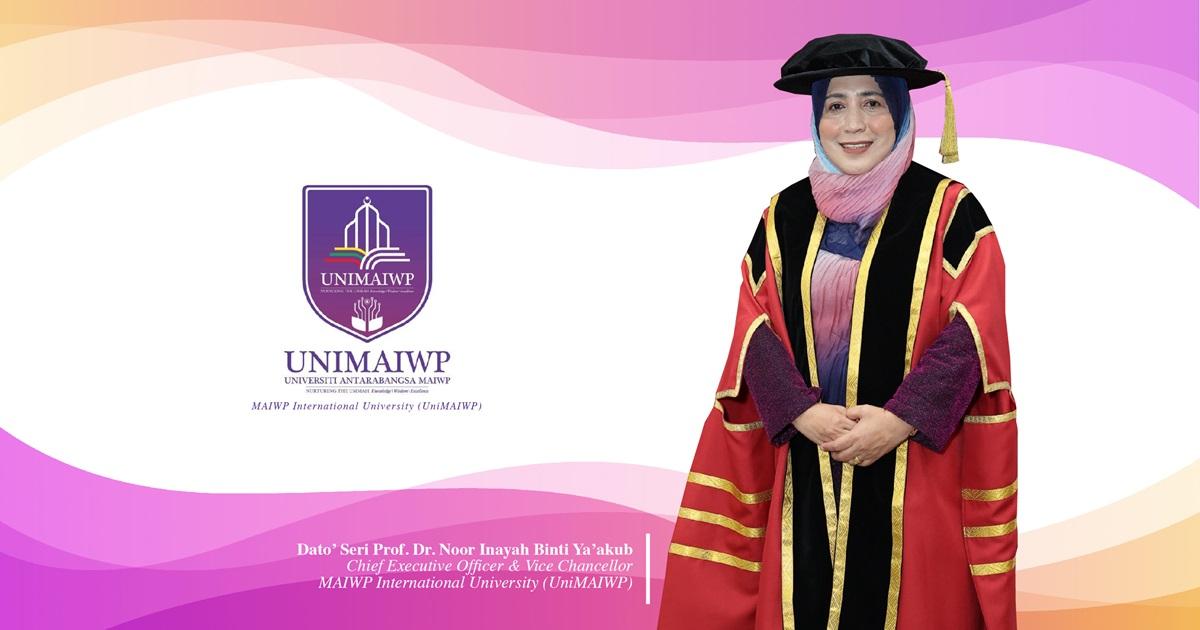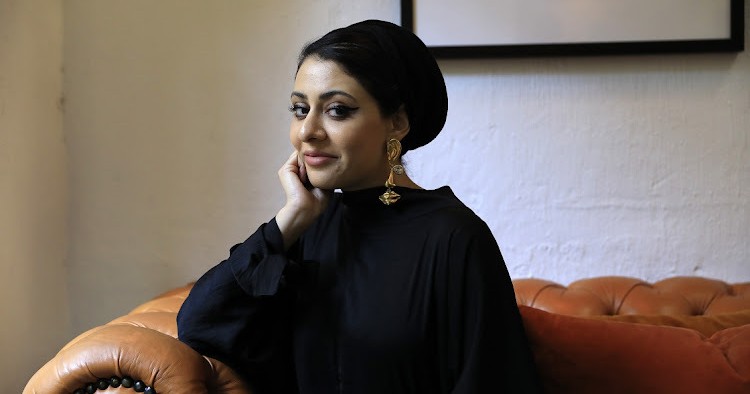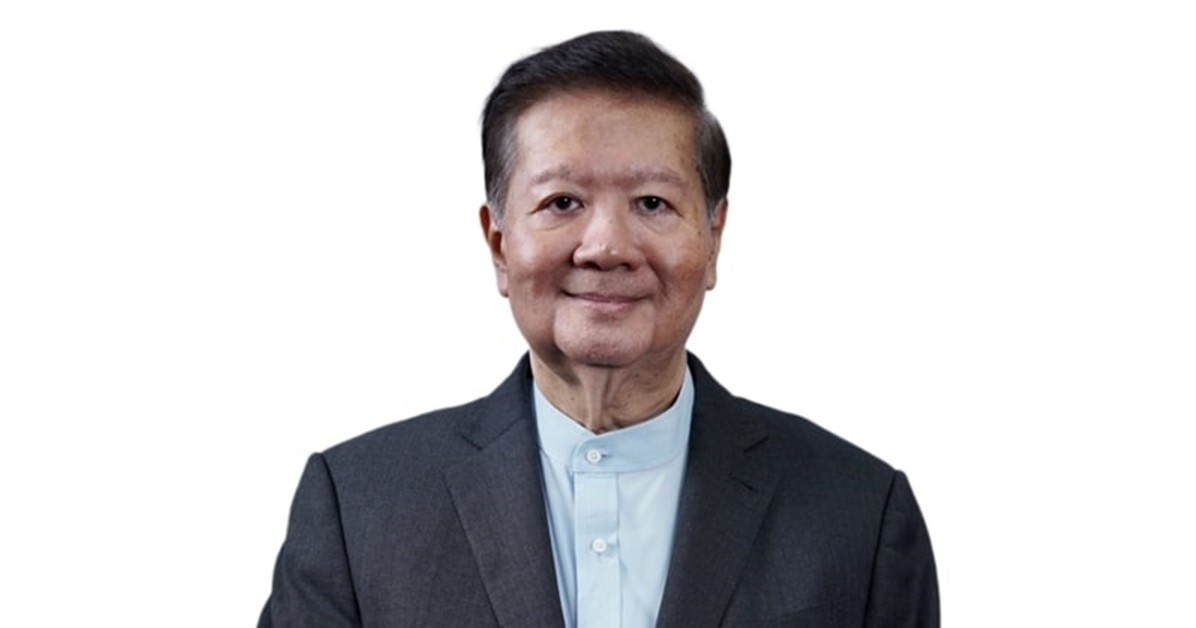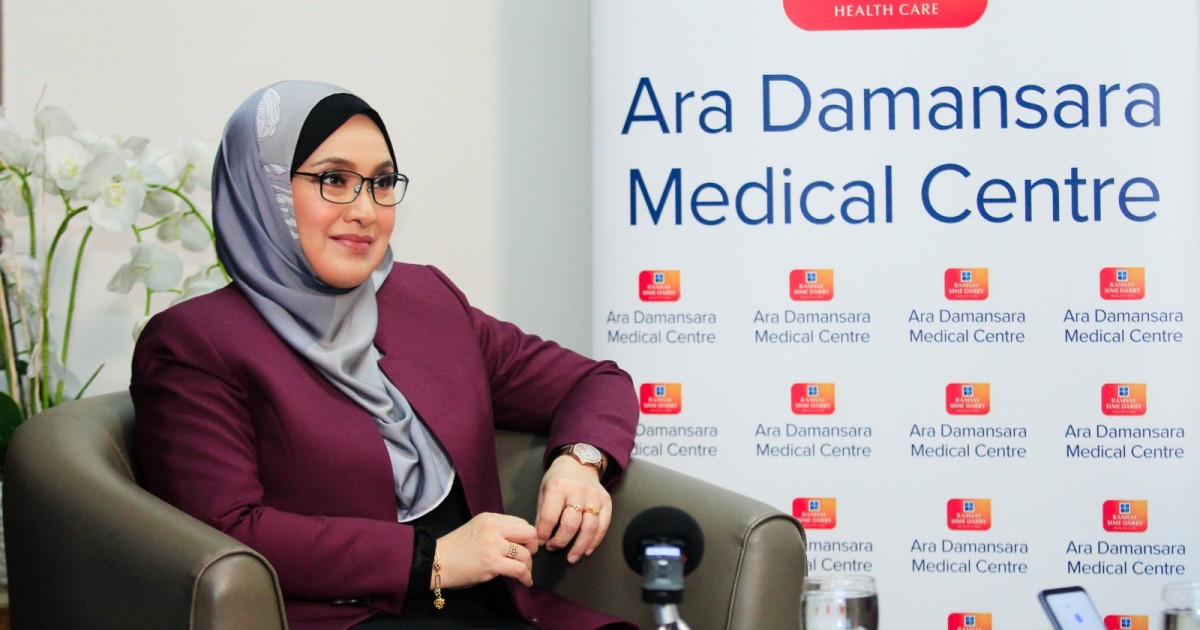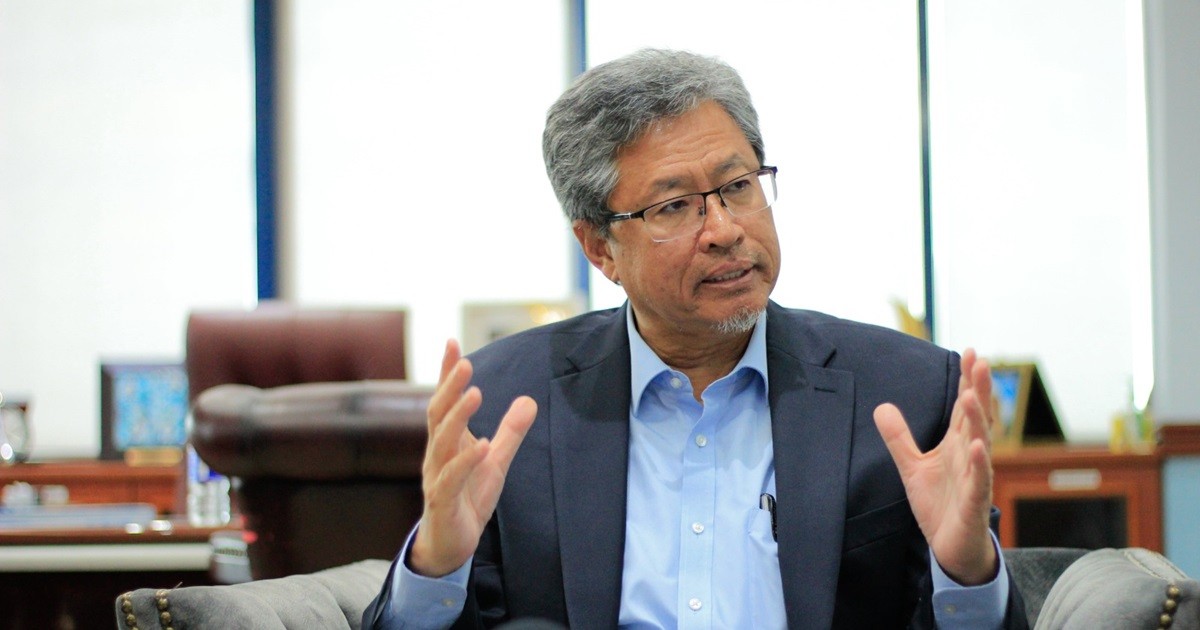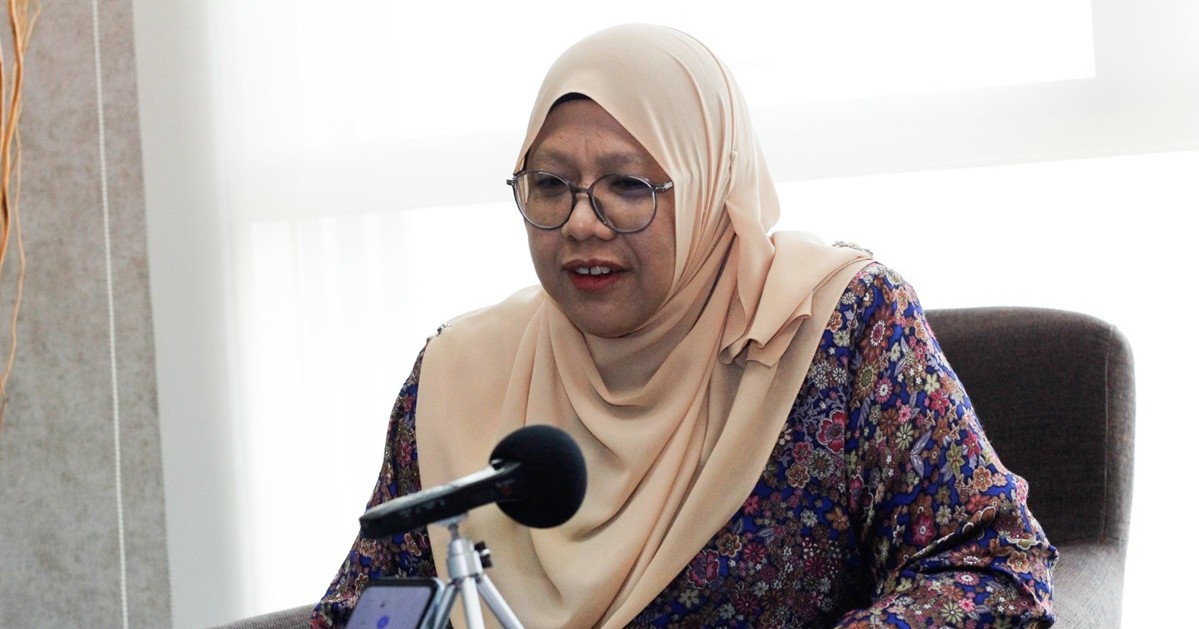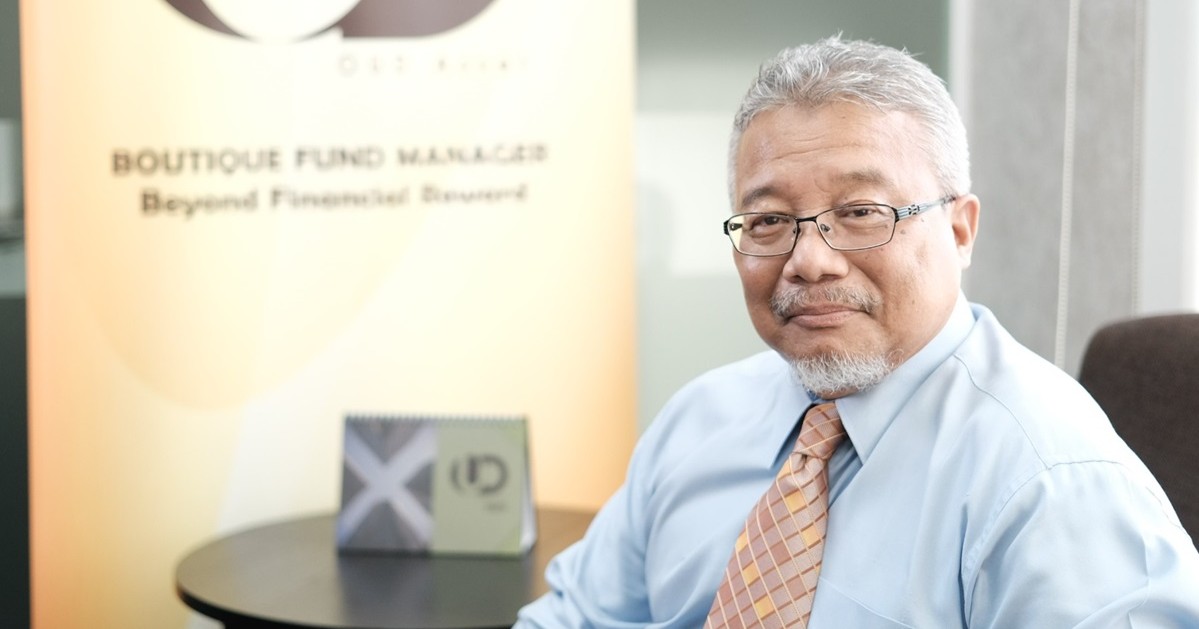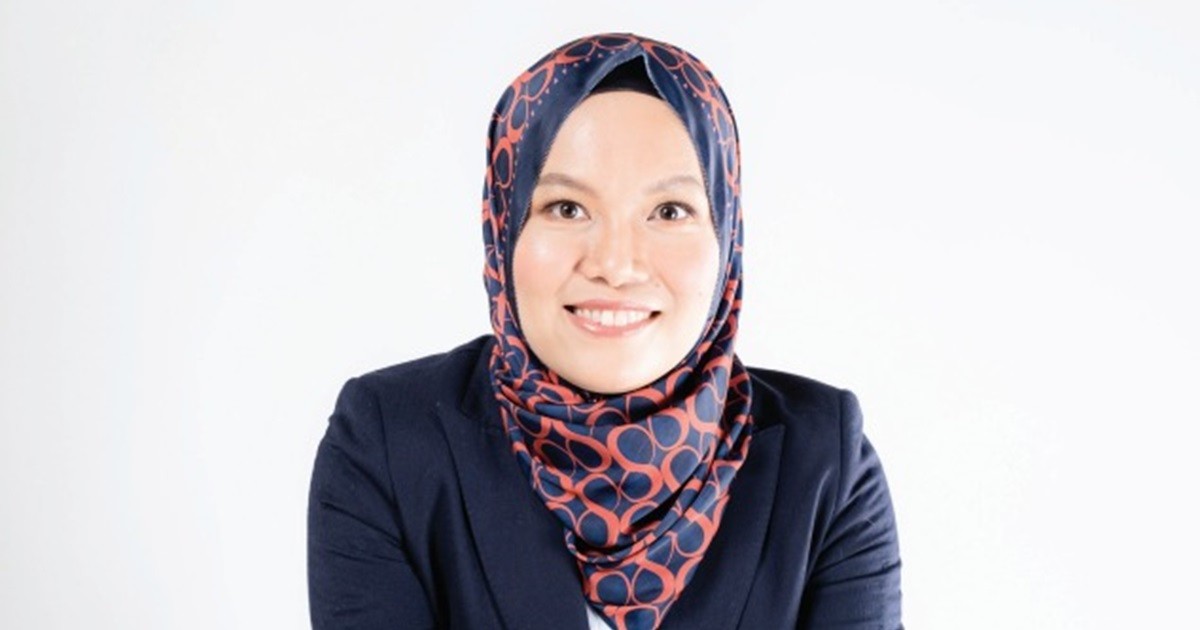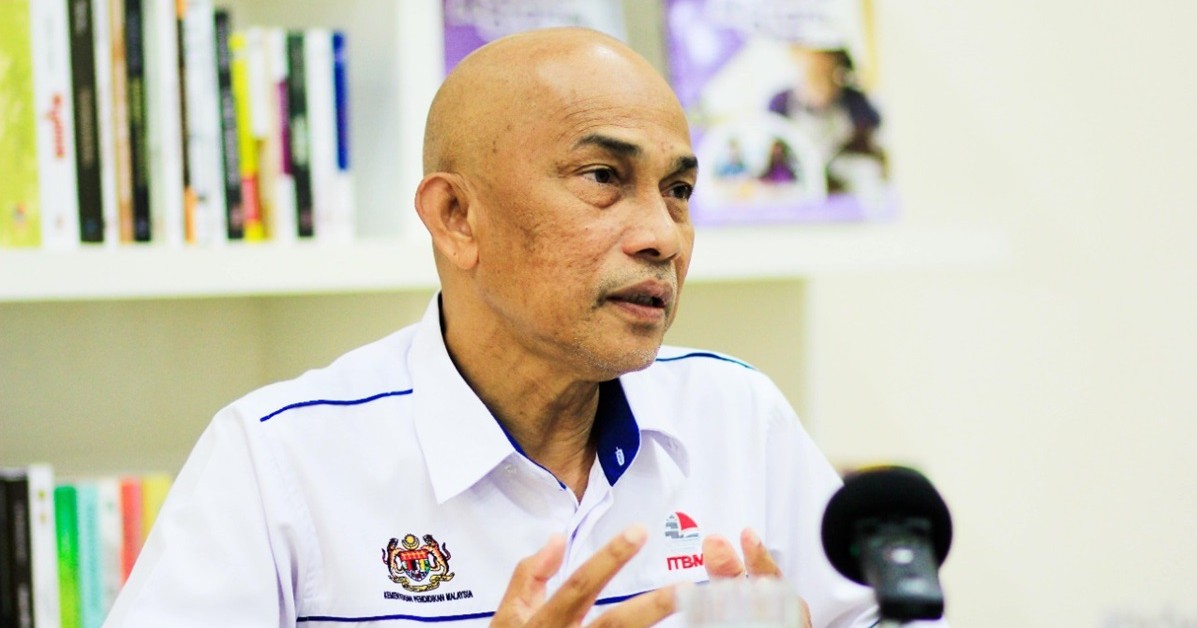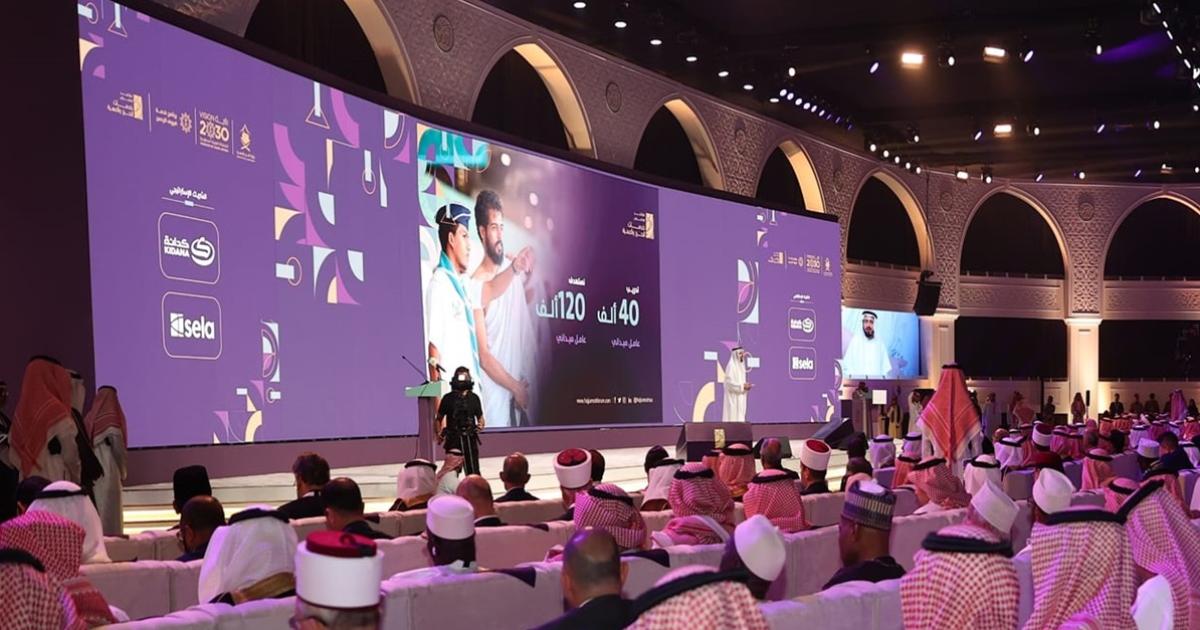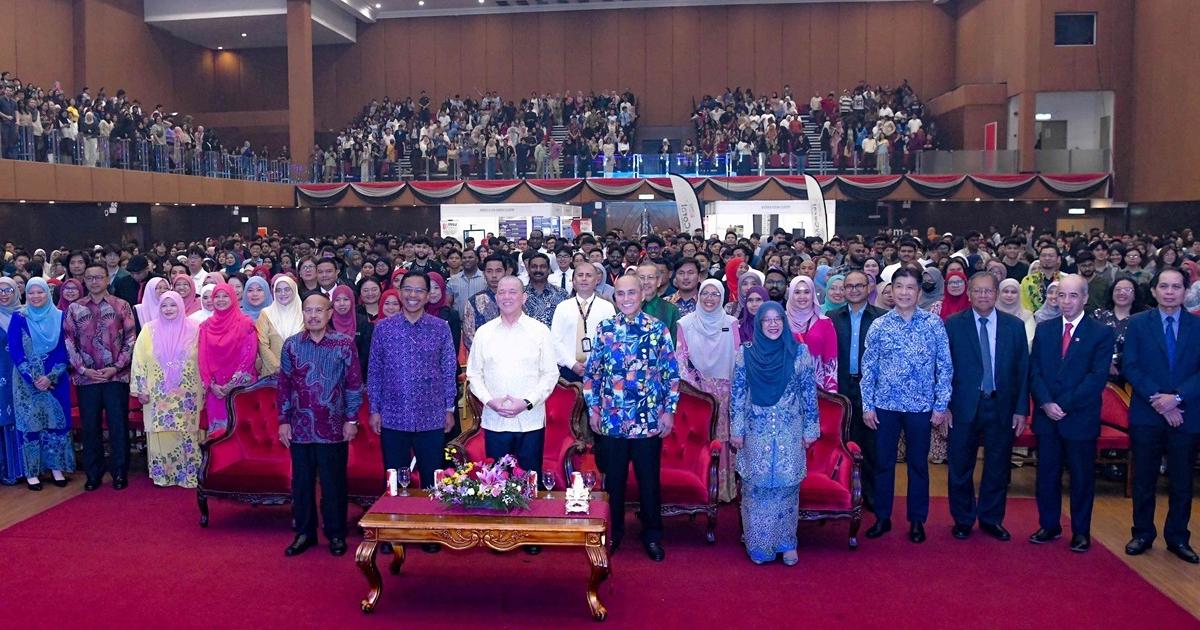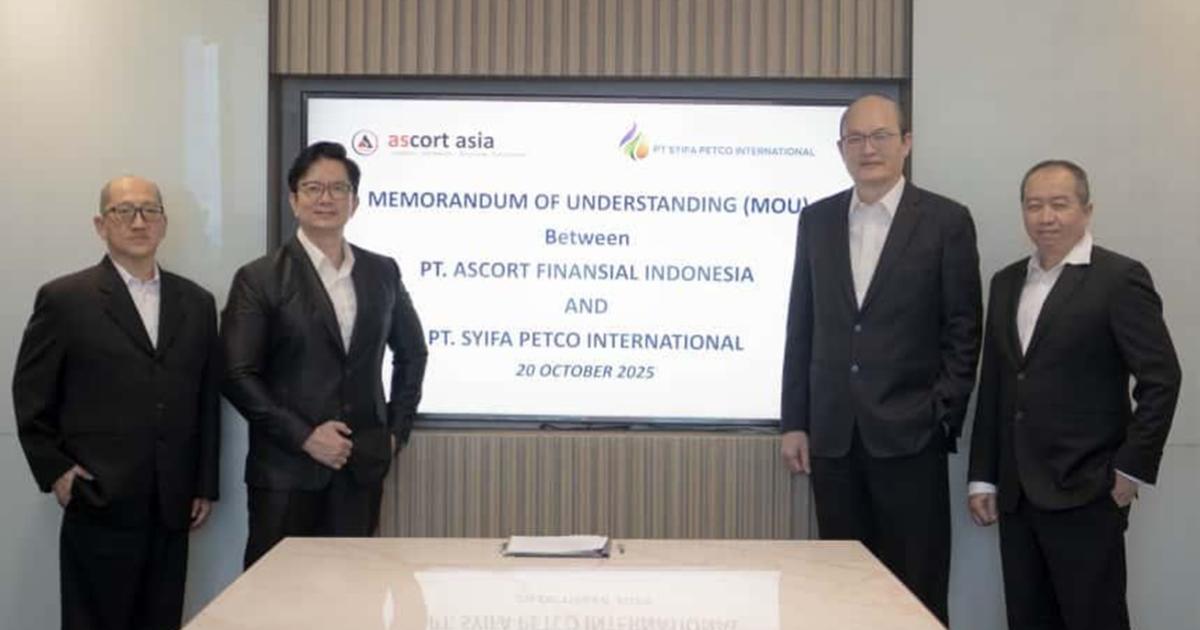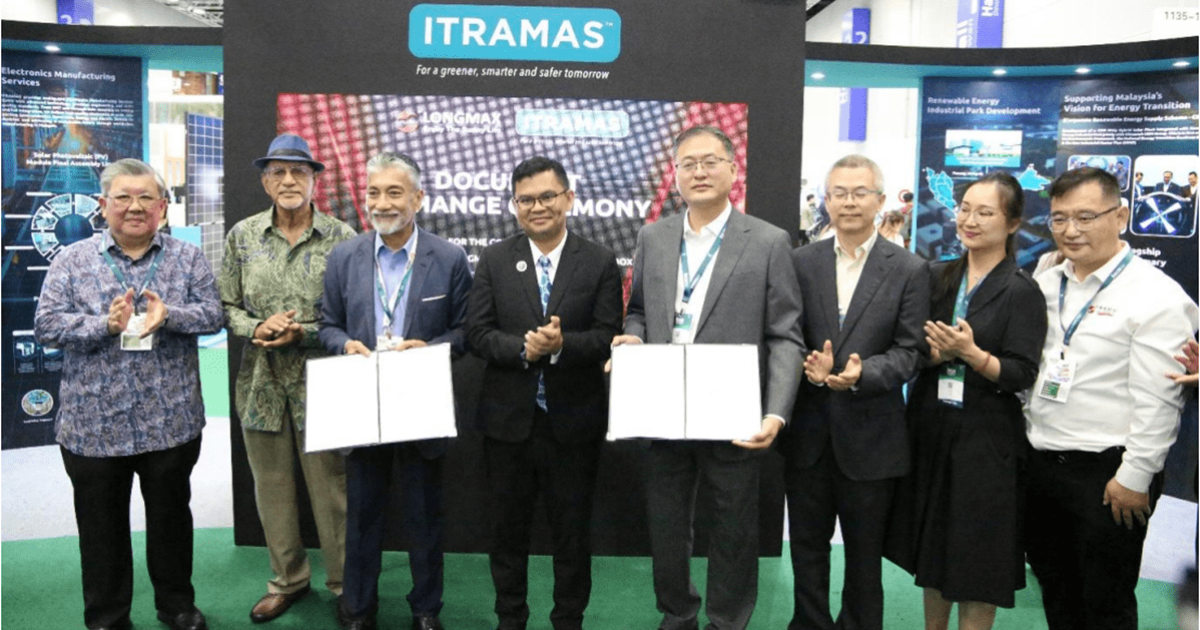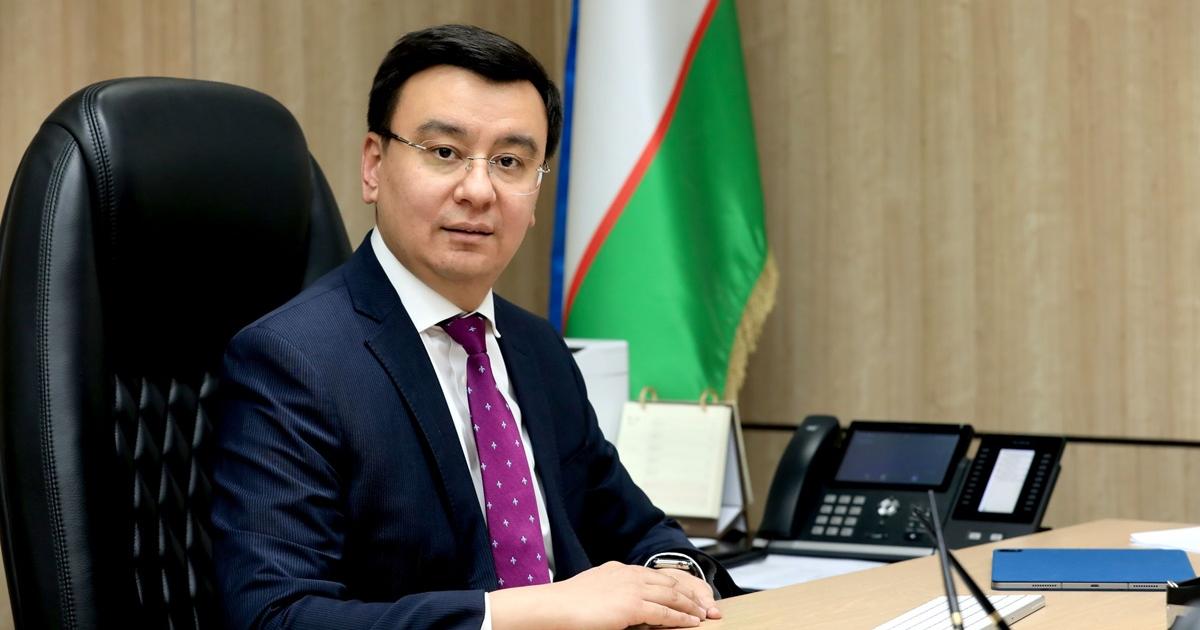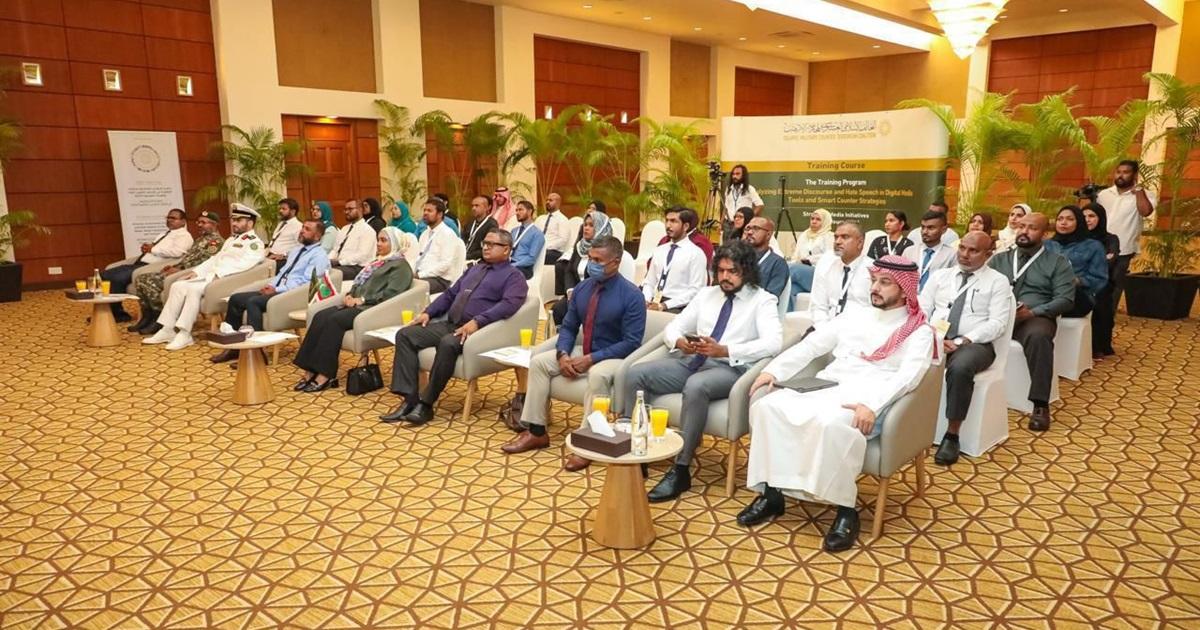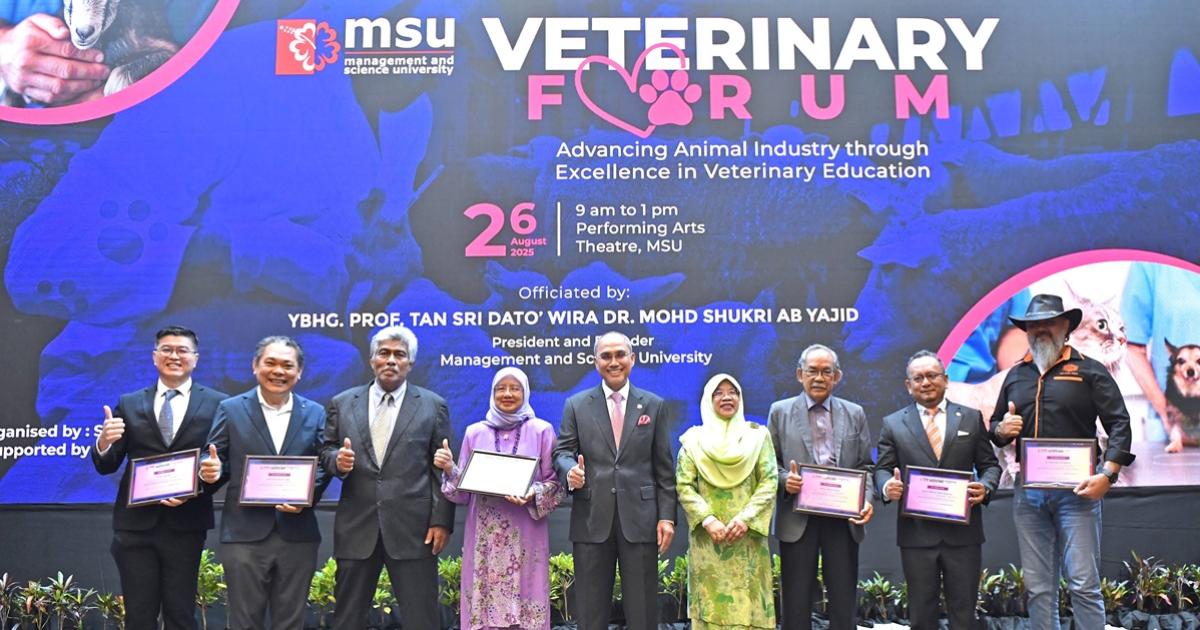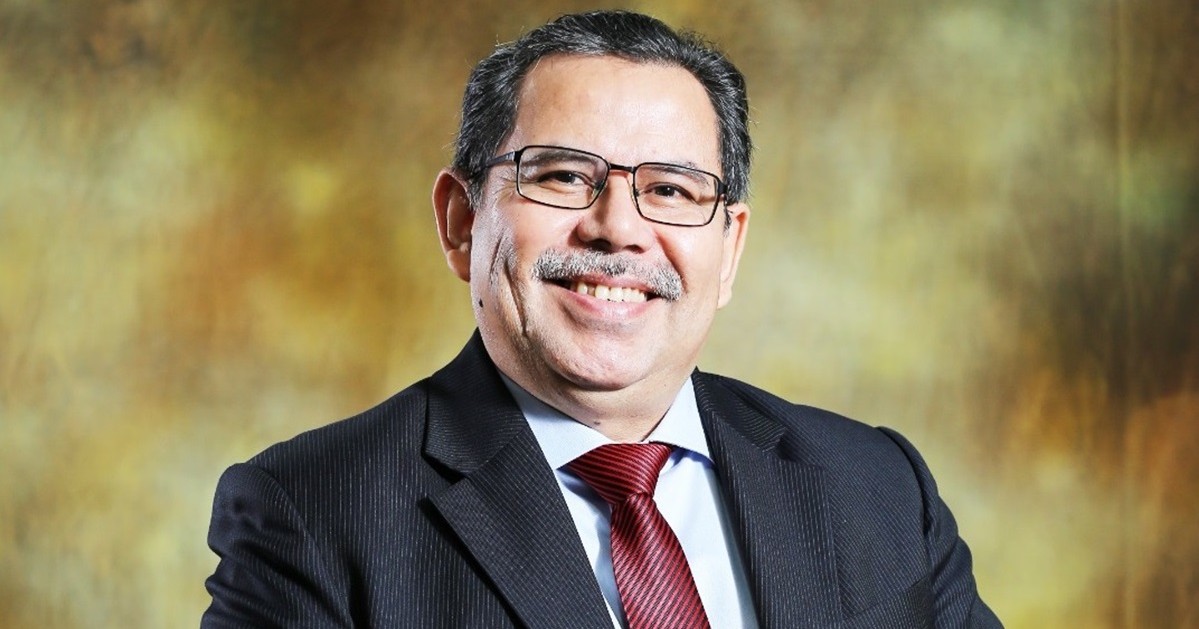
An Exclusive Interview With Professor Dato’ Dr Mohd Azmi Omar President & Ceo Of Inceif, The Global University Of Islamic Finance
Making a Difference
INCEIF is firstly unique in the sense that it is a university established by a Central Bank. There isn’t another full-fledged university that focuses on Islamic finance and that focuses on postgraduate studies. This idea can be traced back to when Tan Sri Zeti Aziz, the then governor of Bank Negara Malaysia, felt that there is a strong need to have talents to manage Islamic finance. The model of Islamic finance started in 1975 with the establishment of Dubai Islamic Bank and also the Islamic Development Bank.
In the early 80s, Bank Islam Malaysia Berhad and Bangladesh Islamic Bank were established. Subsequently, other Islamic banks were established in a number of countries and the development of this sector started to accelerate. As Islamic banks became more popular and more generally accepted, the talent had to expand to manage those institutions. Professor Dato’ Dr Azmi Omar explained that, “You cannot take somebody from just a conventional bank and have them manage an Islamic bank, because it requires a different mindset, different tools.”
“INCEIF is unique because it is for the industry.”
Such a circumstance requires unique talent. Governor Zeti felt that there was a gap in the industry and aimed to fill that gap. Filling that gap and developing the talent was fulfilled by establishing the International Centre for Education in Islamic Finance (INCEIF) as a dedicated university for Islamic finance in 2005. INCEIF has grown significantly since then. The uniqueness of INCEIF is that it has lecturers who have hands-on experience in the industry, which they can transfer to their students, unlike what happens in a traditional university where industry leaders become faculty members only after retiring from the professional positions.
The goal is to impart knowledge to students in a practical way. According to Dato’ Dr Azmi, “INCEIF is unique because it is for the industry. The faculty members we have are another interesting component apart from ex-industry players, we also have captains of industry, who are appointed as professor of practice and they co-teach a subject by taking nearly half of the course load, not like a typical setting where they come to give a one-hour lecture and that’s it. A third unique aspect is the university senate. The university senate normally decides on the examination results, the curriculum, and so on. INCEIF is unique because I would say we are the only university in the world where the senate comprises of both faculty members plus industry leaders.”
These members are not necessarily teaching but they are CEOs of banks, Takaful companies, legal firms, accounting and auditing firms. They sit in the senate so from day one the curriculum is industry-ready. This is opposed to the traditional way of preparing from an academic model and then you send it to the industry for evaluation. In fact, the Senate consists of 50% academic lecturers and 50% industry leaders. This demonstrates how strong the university’s industry connection and collaboration is.
Action Based Learning
The fourth aspect of INCEIF’s uniqueness is a programme called Action Based Learning (ABL). ABL is done in one semester and students solve real problems faced by the industry. Dato’ Dr Azmi highlighted that, “We get companies such as banks, Takaful companies, fund management enterprises, and FinTech initiatives. After we sign a non-disclosure agreement, they identify their problems to us, and we then train our students to become mini consultants. So, they solve real problems faced by the company. It’s not like a classroom kind of solving. It must be practical and for a real problem.”
“Students solve real problems faced by the industry.”
Some of the work that has been done by INCEIF students in the ABL programme has been adopted by those companies. As one example, recently the content for the apps created by BSN Takaful was prepared by the university’s students. Another example is that of Zakat. One of the focal points at INCEIF has been increasing the impact created for the society. “What sort of framework can you develop in order to assess that by paying Zakat poverty has indeed been alleviated?” asked Dato’ Dr Azmi, emphasizing that INCEIF aims to address these issues and impact assessment for Takaful companies through action-based learning.
Another example of the success of ABL was a project on the impact of investment for a FinTech company in Indonesia that provides crowdfunding to develop sustainable housing projects. The students developed an assessment framework for affordable housing in Jakarta. The framework was adopted by that company. Dato’ Dr Azmi said that, “We do that action-based learning in Malaysia as well as abroad, but in 2020 of course because of the challenges we were not able to do many things that we wanted to do. Hopefully, things will be better in 2021 as we have been getting requests from financial institutions not only within Malaysia but also abroad asking us to come over to their country to assess problems and propose solutions.”
Progress Evaluation
The focus of INCEIF in the first ten years was to produce talents for the industry, not only in Malaysia but also abroad. To do this they have programmes like the Chartered Islamic Finance Professional (CIFP). This initial programme was later developed into a master’s and PhD. The doctorate degree was particularly introduced to support the teaching of Islamic finance in a number of countries. The CIFP Masters was tailored more for the industry and to meet the demands of the industry. “Producing talent, especially linking with the industry, is our core mandate and we continue to do that. That’s why we keep on evolving to bring in more industry practice which you cannot get in other universities in the world. We close the gap between industry and academia,” said Dato’ Dr Azmi.
This is a trend that is gaining momentum around the world. There are many universities now that are offering Islamic finance, not only in Malaysia but in other Islamic and non-Islamic countries such as the UK, France, the GCC countries, the North and West African countries and the EU. However, INCEIF is developing in ways that are not easy to replicate by other universities. Apart from producing talent, the main contribution by INCEIF is to provide input to policymakers to help to formulate new strategies and action plans. When Dato’ Dr Azmi took the helm in late 2017 Bank Negara introduced a policy paper on value-based intermediation. Immediately, INCEIF took the role as requested by the Central Bank to develop the assessment framework for this new policy.
Dato’ Dr Azmi explained that value-based intermediation is the idea that you must incorporate values in your offerings. In principle, this is based on Maqasid al-Shari’ah. It is also aligned with sustainable development goals (SDGs). There is an interface and linkage between value-based intermediation and SDGs. INCEIF took the lead to become a CoChairman in developing the value-based intermediation impact assessment framework. All the members are from the Islamic banking industry. Together they developed a policy paper and that was launched by Bank Negara in 2018. That’s one example where INCEIF actually does the work for the industry and guides the policymakers.
Dato’ Dr Azmi also highlighted another initiative called value-based Takaful, which has yet to be launched because of the COVID-19 outbreak. “We collaborate with the World Bank, the Islamic Development Bank, and the International Federation of Red Cross and Red Crescent. We are working on financial inclusion.” There are many Muslims who don’t participate in the financial sector either because of the Riba or because they are low-income individuals. They might wish to engage with Islamic banking but don’t have access to the bank for various reasons.
In Malaysian states Sabah and Sarawak, you still find people who are staying far from the main town and don’t have access to a bank. Even if people live in the town there may not be a bank there as it is very costly to set up a bank. Therefore, Dato’ Dr Azmi mentioned that INCEIF is working with the World Bank and the Islamic Development Bank to develop the financial inclusion tools to provide input in terms of what are the key things that must be incorporated into digital platforms to bring more people into the financial sector.
“We develop policy and produce how it can be adopted and implemented when they want to bring Islamic finance using digital means. In this regard, we produce papers on policy works in collaboration with international financial institutions. This is part of our international tasks. For industry-specific, we work with a number of local Islamic banks and Takaful companies for the specialised consultancy work to help with the development of micro and small enterprises. We come in, provide the framework, explain how to do the assessment for them to push forward the Islamic finance,” said Dato’ Dr Azmi. Banks also need applied research and INCEIF does this for them before they are able to launch their products. Unfortunately, due to the COVID-19 pandemic, the university has not been able to expand beyond Malaysia although it has worked with the government of Kazakhstan on the Astana International Financial Standard, where INCEIF conducted training for the country’s Islamic finance professionals.expand beyond Malaysia although they have work with the government of Kazakhstan on the Astana International Financial Standard, where INCEIF is training people on Islamic finance.
Strong Framework
If you look at the history of Islamic banking in Malaysia, the moment an Islamic bank was established in 1983, the government issued the Islamic Banking Act 1983. Subsequently, the Act was amended before the Islamic Financial Services Act (IFSA) was introduced in 2013 and it continues until today. The Securities Commission also has dedicated guidelines on the Islamic capital market. “I think one of the main reasons why Malaysia is successful as far as the Islamic finance is concerned, is a very strong regulatory framework,” believes Dato’ Dr Azmi. In fact, part of his role working abroad with the IsDB was to advise countries on how to implement Islamic banking in their country. “It is not just the matter of establishing a bank. It also requires regulations, human capital and all the associated industries or services,” he added.
“One of the key ingredients in Malaysia is a strong regulatory framework for Islamic banking and finance.”
Dato’ Dr Azmi believes that strong regulations mean that the public will have confidence in the products and services offered by not only banks and Takaful but also the capital market. When the public has confidence, they will not only to put money in saving accounts but also invest in the capital market, because their regulators are always very advanced in terms of looking at what are the future challenges.
The other important component Dato’ Dr Azmi highlighted after the regulatory framework is talent. “We have talents in banking, Takaful, capital markets, and now in social finance. Malaysia is able to even export the talent, so that’s also another important part. Once you have the talent and you have the regulations, you also need to have a sufficient number of players, which means you need to have financial institutes and you need to have instruments. Malaysia has many banks and many Takaful companies. If you have only one financial institution in a country, it’s very difficult for them. You need to have different types of financial institutions.”
Malaysia also has different types of instruments, banking instruments and capital market instruments. There are short-term, mediumterm, and long-term instruments because it’s all required in order to meet the demand for different sectors. Individuals have different needs, companies have different needs, small and medium enterprises have different needs, and large corporations have different needs. Malaysia has all these components. Finally, Dato’ Dr Azmi pointed out that the Shari’ah community in Malaysia is also very brave in making decisions. Ultimately, there will be convergence along the way, but somebody must start; otherwise, nothing will move.
“You have to be brave, but at the same time be cognisant of the issues and the things that are feasible. You adjust it to make sure that you can use them. So that’s how Malaysia has evolved.”
Collaboration is Key
INCEIF may not have a big number of faculties compared to larger universities but it make up for that by being highly focused and specialised. One aspect that makes INCEIF stands out is its close collaboration with the FinTech industry.
Therefore, somebody who does our MBA (Sustainable Business) would know Islamic finance as well as all the aspects of sustainability issues. “Our curriculum incorporates data science, the analytics inside our curriculum. We are cognisant that we do not have our faculty of computer science, or computer engineering to support us. We take experts from the industry to be with us. Some of these courses are taught by people in the industry. So that’s how we do it, we keep on changing to meet the industry requirement,” Said Dato’ Dr Azmi.
That is the strategy INCEIF uses in their collaboration with FinTech companies. Dato’ Dr Azmi mentioned that soon the university will sign an MOU to develop another impact assessment for Zakat, Sadaqah and Waqf, a crowdfunding platform. “We are developing that and are providing the blueprint; they will then put in the coding part. Our approach has always been the collaboration with key experts to ensure that we are always at the top,” he said. Such strategic collaboration benefits INCEIF students, the industry and the society as a whole.
When it was launched, the value-based intermediation policy was the starting point in the work with financial institutions. These institutions need support because they do not have experts in their own banks or Takaful companies who will be able to put the lens of VBI in their decision making. For banks, it’s the financing decision or risk management. For Takaful companies, it’s the protection that they provide. INCEIF fills that gap where the demand is not only in the context of financial services, but also the industry at large. Dato’ Dr Azmi advised that the issue of sustainability should be on everyone’s agenda now. INCEIF now offers MBA for sustainable business.
“You must also be concerned about sustainability and how to incorporate the element of sustainability in your projects.”
“We have to be concerned about the 3Ps: People, Planet and Profit. Of course, this goes along with the sustainable development goals. Through this lens, we decided that if we can continue to offer one or two courses within our Master in Islamic Finance, why don’t we have this a bit broader to capture all industries. So, the approach now of what we do is that we blend Islamic finance and the sustainability agenda and that becomes the subject that crosscuts all courses, all programmes. Therefore, somebody who does our MBA sustainable business would know Islamic finance and would know all the aspects of sustainability issues. The target market is now going beyond the financial sector. You must also be concerned about sustainability and how to incorporate its elements in your projects.”
Perhaps one of the defining features at INCEIF is how Dato’ Dr Azmi considers the university’s role in the industry. In addressing this topic Dato’ Dr Azmi remembered his time in Tunisia during his work with the IsDB. “We had a conference there and one of the sessions was on the role of education for the country. If you talk to most academic professors they will say that our role is to produce graduates, and the role of the industry is to take them. To me, that is wrong thinking. Yes, you want to produce people who are intellectuals, but universities have a bigger role. You need to produce graduates for the current needs and the futureneeds, which means that the university’s role will be to look at what are the current and future requirements for the country.
He highlights that the curriculum should be designed based on those needs. Otherwise, the university may produce people who are not productive in the economy. At the end of the day, it is not only about gaining knowledge, it is also about contributing positively to the country in different ways. It is not required that someone earns a high salary to contribute to the country either. “So we need to look at the kind of requirements,” said Dato’ Dr Azmi, adding that “If say for example we believe that social enterprises will be a very important sector in the country, then we need to develop curriculum arranged in such a way that we support social enterprises, or create specialisation and so on. We have to take not only the current requirement but also the future requirement into consideration. To me, if we don’t do that, we have to blame ourselves as people who are responsible to produce skills and talents for the future.”
Path to Adaptability
While the pandemic makes it more difficult to plan for future advancements a volatile environment can bring out some of the most significant ideas. Given the current challenges Dato’ Dr Azmi sees the trend of digitalisation and the trend of sustainability. Under these two big trends fall the Islamic finance, Islamic economy and Halal economy. It is absolutely essential that students remain versatile and practical in their knowledge. “Being a university, we have to address those concerns and provide the necessary talent for the graduates so that they are industry-ready and to lead the industry in the future. We need to produce graduates to meet that.”
He also believes Malaysia should be a leader in Islamic FinTech. “Now there is currently no country that is identified as a leader in this area. Nobody can claim to be a leader in Islamic FinTech. In Islamic finance, Malaysia is a leader, but for FinTech the field is open. Indonesia, Malaysia and Bahrain are aiming for that,” he said. Supported by the Government of Malaysia, INCEIF has identified a number of areas within Islamic FinTech and nurtures graduates to meet industry needs. “We need to identify the areas that the industry or the consumers need in the short term and long term, looking at what going to happen in the future. Then we draft our curriculum and bring in the incubator innovation lab in INCEIF. These facilities will be available to utilise no only by INCEIF students, but also by other professionals and researchers.”
Adapting to change in a positive way requires many factors to engage with one another to create a movement that will be both beneficial and realistic. Identifying the facets of the challenge and how to address them is no easy task. As COVID-19 is a clear challenge for any business organisation it is necessary to have a clear vision to adapt and move forward. He noted the vital element of leadership during a course of change. “Of course, you then need to develop the strategy and this is where strategic leadership is very important for organisations. Even if small, you need to train people to have the vision, to have the leadership.”
After establishing a clear vision by good leadership Dato’ Dr Azmi stressed that it is time to then look at the available resources. An organisation needs to identify whether or not their resources are sufficient or if they need additional support. Training is then needed to enhance the utilisation of resources in a way that will bring bigger benefits. “Once the team members have that kind of support then also look at the other components. Look at the cost and where you can cut. You need to have a second layer of resources supporting you and a third layer to offer additional support.”
For entrepreneurs, Dato’ Dr Azmi said, it can be far more complex as they represent all the elements at once, and that entrepreneurs need to make triple the effort in that regard. As a relatively big organisation, INCEIF has the support, but they need to still adjust and adapt to various circumstances. INCEIF’s President and CEO also stressed that another crucial factor for any organisation is the support of its people. “You need to get the people to support you. Of course, in any organisation, you may not get 100% of their support. You may have fewer people, but these are super-productive people. Identify people who are innovative where each of them can produce more than three individuals!” he said.
Dato’ Dr Azmi considers that “The basic principle is there will always be opportunities in crises. The question is how nimble you are and how fast you react to create those opportunities. For example, our student number in 2020 was higher than 2019, whereas many universities would have smaller numbers of students because of COVID-19.” At INCEIF there is a dedicated team that focuses on this. They noticed during this pandemic an increase in digitalisation and due to physical social distancing and the concern about meeting people everyone is moved towards using digitalisation.
In order to take advantage of a situation, it is necessary to know the trend. Digital applications are one trend INCEIF aims to utilise. Another trend they have identified is climate change, environment and sustainability. This was brought into strong focus by how quickly the COVID-19 virus spread to every country around the world. Those trends have been successfully incorporated in the university’s curriculum. “Companies must not only see opportunities from the crisis but also take action. That’s why you find some banks are doing better off even when they have a moratorium. They have improved better for the simple reason that they are able to take advantage of the crisis,” Dato’ Dr Azmi explained adding that, in most cases, the delivery channel is the digital means. It may not be the only solution, but in most cases the channel is digital.
“We noticed that some employees had less work during the pandemic. So, we redeployed them into strategic areas that bring revenue to the university. It’s a matter of how you reorganise by putting more resources in the areas that are more demanded.”
More and more businesses are exploring ways to digitalisation to enhance activities. In Malaysia, the government has provided a number of incentives for SMEs to bring their business into the digital platform. Moving to digitalisation requires a company to make more effort, more focus and more dedication. In the case of INCEIF, they used to organise many events before the advent of the novel coronavirus such as convocations, conferences and seminars. However, the physical setting of these events is no longer being carried out, and all events are online now. Since many people were involved in organising those events, who did not have much work to do during the pandemic, INCEIF has already deployed many of them into the marketing team.
And the Mission Continues
“When the first COVID-19 case was detected in Malaysia, the nation was not prepared for it. Everyone was only thinking about how it was affecting China. By the time the first Movement Control Order (MCO) was announced, INCEIF was fortunate because we had already gotten the distance learning license and our digital platform was in place. A university needs a separate license from the Ministry of Education for this, and INCEIF has obtained that license from Day One when it was established.” Due to the advanced preparation, INCEIF resumed business as usual during the MCO, but without face-to-face activities including classes on campus. “The university was already on our midsemester break. So, we needed only another week to prepare ourselves and resumed classes again. Today, everything including take home examinations are conducted online. To students in need, the university provides financial support for their Internet access,” says Dato’ Dr Azmi.
Although the overall performance of INCEIF in 2020 has been good, there were setbacks which led to a decline in revenue. “As typically the case for a private university, our main source of revenue would be from student tuition fees. The second source of revenue is from our research and advisory services, which has gone down slightly. Many potential clients are either facing financial difficulties or uncertainties while existing ones have deferred their projects due to the economic downturn caused by the pandemic,” Dato’ Dr Azmi says. Another income generator is executive education where customised short-term courses are conducted for individuals, staff of corporations or members of associations. These courses had to be deferred to later times as they required inperson learning.
Throughout the period of the pandemic, INCEIF continues to offer online teaching and learning to all its students whether in Malaysia or those who had to return to their home countries. International students would only be able to return to the campus in Kuala Lumpur once the Malaysian Government re-opens its borders to all nationalities. Beginning on 13 January, the country has re-introduced a two-week MCO which has since been extended following a spike in COVID-19 cases in the country.
“Despite the setbacks and uncertainties, INCEIF must persevere because we have a moral obligation to impart knowledge conscientiously and shape today’s learners into leaders for a better tomorrow. We will continue to embrace the wisdom of Islamic finance to illuminate the path for a sustainable and inclusive future for all,” says Dato’ Dr Azmi.
- Business News 100
- Country News 16
- Feature News 30
- International News 151
- Interview News 35
- National News 18





